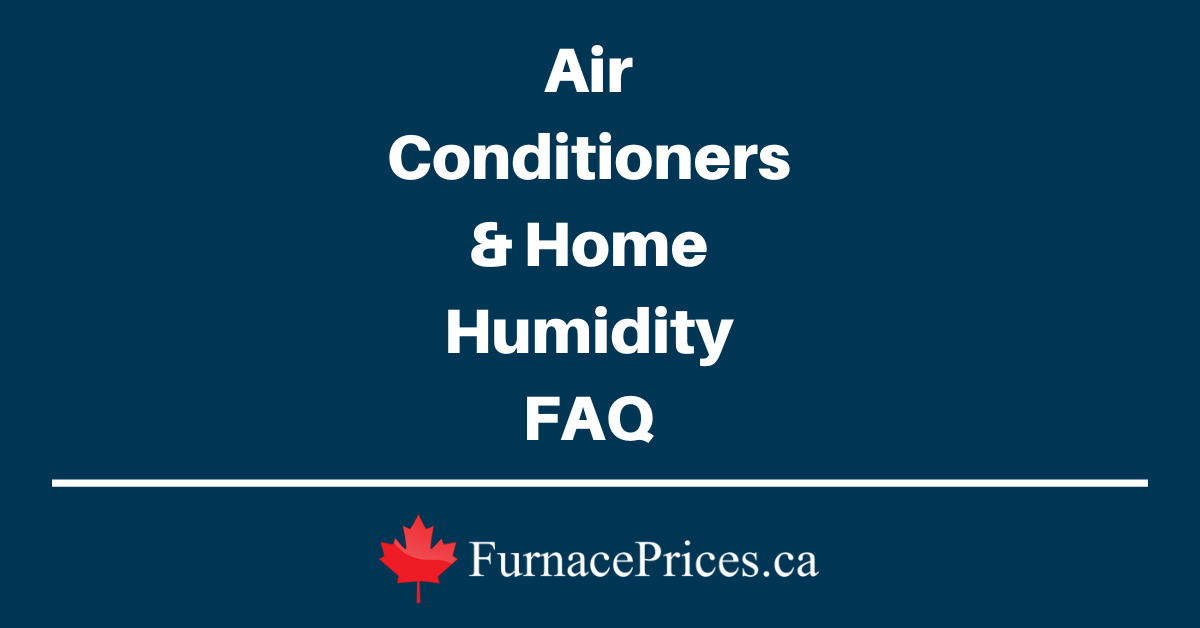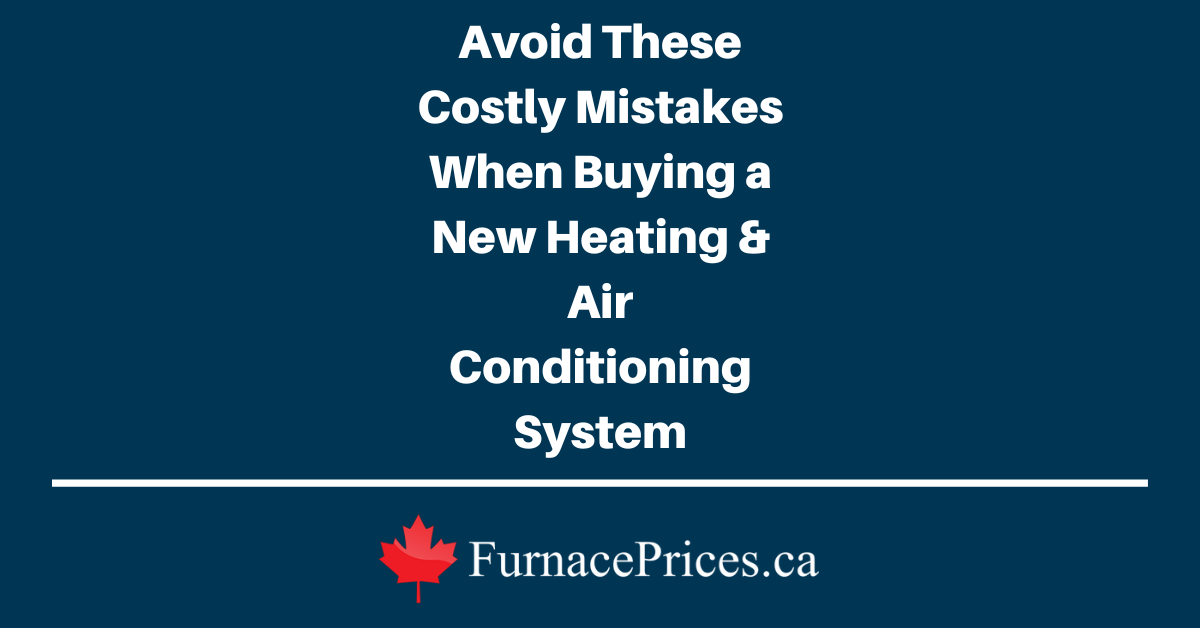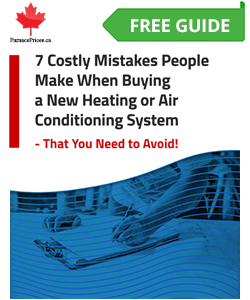Good indoor air quality is critical for overall health. Whole-home air purifiers ensure pollutants, allergens, and toxins inside the home don’t negatively affect the air you breathe.
These systems connect to your central heating & cooling system and actively clean the air as it circulates.
Interest in home air filters started growing during the COVID-19 pandemic and has continued to grow because of things like increasing wildfire smoke. This guide will tell you everything you need to know about indoor air quality and whole-home air filters, including benefits, types, cost, and how to choose the right one.
Understanding Indoor Air Quality and Common Household Air Pollutants
Indoor air quality (IAQ) is a measure of the quality of the air inside a building. It accounts for pollutants, temperature, humidity levels, and ventilation, all of which can impact the health or comfort of the occupants.
Common contaminants that can impact indoor air quality include:

- Mold spores
- Dust and dust mites
- Viruses
- Pet hair & dander
- Pollen & allergens
- Fungi
- Paint, chemicals & solvents
- Cleaning agents
- Personal hygiene products
- Pesticides & herbicides
- Melamine furniture, harmful vapours, formaldehyde
- Tobacco smoke
- Wildfire smoke
- Fireplace & candle smoke
- Printer & photocopiers – e.g. ozone, volatile organic compounds (VOCs)
How Does Air Filtration Work?
Whole-home air purifier systems are for homes with existing ductwork and central heating/air conditioning.
Sometimes the filter is placed near the furnace, and other times it’s installed in the ductwork. As air circulates around your house, the filter removes airborne particles and contaminants from the air.
The most basic furnace filters will remove dust, pollen, and dander from the air, but you’ll need something more heavy duty to eliminate smoke, VOCs, mold, smog, and fine particulate matter.
The Role of Home Air Purifiers in Virus Prevention
Most standard home air filtration systems don’t sterilize indoor air. They should reduce the number of virus particles circulating in the air, but they don’t kill pathogens and won’t make any indoor space totally safe from spreading viruses or bacteria.
Air filtration systems with HEPA quality filters do a better job of removing harmful pathogens like coronaviruses. However, an ultraviolet light (UV) or other sterilization device is your best bet because they actually kill pathogens. These may be included with some air filtration systems.
Whole-home Air Filtration Benefits & Key Features

- They Treat All the Air Throughout Your Home. Unlike a portable room air filter, a whole-home air purifier cleans all the air in your house.
- They’re Cost Effective. Whole-home air purifiers are an effective and affordable method of cleansing the air you breathe.
- They Can Extend the Life of Your HVAC Systems. By eliminating dust and debris, whole-home air filtration systems can actually make your HVAC systems cleaner, which adds up to a longer lifespan and more efficient operation, saving you money in the long run.
- They Make Virtually No Noise. Whole-home units generally operate very quietly as they are integrated into the existing HVAC work installed in your home.
- They’re Efficient. Traditional air purification filters may actually restrict airflow in your home, causing the blower to work harder. Whole-house air filtration systems don’t block airflow and have no adverse effects on how your HVAC systems operate.
- They Save Space. Unlike portable air filters, whole-house air filtration systems are installed within your HVAC system and out of sight. They don’t take up any additional space in your home and don’t create eyesores in any room of your home.
- They Require Little Maintenance. Normal fiberglass air filters need to be replaced once a month (which many people often don’t do nearly as often as they should!) but a modern whole-house unit needs its filter replaced about once every three to nine months.
- Allergy relief. If you have allergy sufferers in your home, they could benefit greatly from a home air purifier.
- Improved sleep. People who have trouble sleeping because of stuffy noses and other breathing difficulties can benefit from having an air filter running round the clock. And since home air filters are quiet, they won’t disrupt sleep the way noisy room air purifiers can.
When all is said and done, a whole-house air purification system will save you time and money by protecting your HVAC system. They don’t use a lot of additional energy and are easy to
maintain. And of course, it will give your family cleaner, healthier air to breathe.
The Types of Whole-Home Air Filters

- Flat filters are about 1-2 inches thick and made of fiberglass. These are common on most furnaces in Canada. For a few dollars more, you can purchase higher-quality flat filters that are pleated and provide more effective filtration in a similar-sized package. Some flat filters are electrostatically charged to capture very fine particles like pollen that pass through your air return system. One downside of this type of filter is that they may restrict airflow, forcing your HVAC system to work harder to push the air through the filter.
- Extended media filters are essentially a larger and more advanced version of flat filters. They consist of an 8-10 inch block of accordion-like woven fibers, which is affixed to the ductwork and must usually be installed professionally.
- Electronic air filters use a more powerful electrical charge than the aforementioned type to capture tiny pollutants in the air like smoke particles and are much more effective than flat filters. These filters use an electrostatic precipitator to attract and capture pollutants in an aluminum collection tray which must be washed with soap and water every 3-4 months.
- Ultraviolet filters are the kinds that are used in hospitals and other medical facilities. UV filters are especially adept at neutralizing bacteria, viruses, and other pathogens and are typically sold as an add-on to other filtration or ventilation systems.
HEPA Standard: A Benchmark for Effective Air Filtration
There are different types of rating systems to classify air filters. Minimum Efficiency Reporting Value (MERV) is a common one. MERV typically ranges from 1 to 16. The higher the number, the smaller the particles the filter can trap and the better the filtration.
The best whole-home air filters meet the HEPA standard, which ensures they “filter at least 99.97% of particles that have a size greater than or equal to 0.3 µm”. These are among the best at filtering out particles from the air.
Comparing Prices of Whole-Home Air Filters
The most affordable whole-house air filtration system is a flat filter style system. Home air purifiers get more expensive as the technology improves. The good thing about the variance in price is that there is an air filtration system that can fit into just about anyone’s budget.
One thing to note, however, is the cost of buying and replacing filters. Replacing filters can cost anywhere from $40 to $200 a year. While flat filter systems offer the most initial savings, they may be less economical in the long run since you have to replace their filters much more frequently – about once every 2 months.
With higher-end models, the potential for overall savings is greater, there is less maintenance involved, and they tend to offer the best overall air filtration, especially when it comes to fine particulate matter.
Still, it is safe to say that most homeowners spend anywhere from $650 to $2,500 on a whole-house air filtration system. Here’s a general pricing guideline for the major types:
- Flat filters: about $10 – $50 each
- Extended filters: about $400 – 700, including installation
- Electronic filters: about $600 – $1500+, including installation
- Ultraviolet air filtration add-on: anywhere from $400 – $1000+
How to Pick the Right Air Filter for Your Home: A Home Air Purifier Buyer’s Checklist

1. Determine why you need an air filter.
- Are you looking to remove allergens like dust, pollen, and pet dander? A basic filter will do.
- Do you need to combat specific pollutants like smoke or volatile organic compounds (VOCs)? You’ll need a more powerful filter.
- Do family members have allergies or asthma?
2. Choose a filter type.
- Flat filters: Good if you’re looking to generally improve the air quality in your home but don’t necessarily have any specific concerns.
- Extended media filters: More effective than flat filters, but they still won’t eliminate things like smoke from the air.
- HEPA filters: Highly efficient at removing airborne particles, including allergens and fine dust particles. Common in homes where people have allergies or asthma.
- Activated carbon filters: Effective at removing odours, smoke, and VOCs.
- Electrostatic filters: Effective for allergens and larger particles.
- UV filters: To kill bacteria, viruses, and mold spores.
3. Consider MERV rating.
- Filters with lower MERV ratings will only filter out some contaminants.
- Higher MERV ratings indicate better filtration, but they may also reduce airflow if your HVAC system isn’t designed for it.
- For residential use, MERV ratings between 8 and 13 are generally recommended.
4. Check the filter size.
- Ensure the filter size matches your HVAC system.
5. Think about maintenance.
- Some filters need to be replaced regularly, whereas others can be cleaned and reused. Others only need to be replaced every few months.
6. Budget.
- Some systems have a higher upfront cost but require less maintenance and fewer filter replacements, so they may be more cost-effective in the long run.
7. Consult an HVAC professional.
- A qualified HVAC professional can provide personalized recommendations (including sizing) based on your specific needs and system requirements.
- Some whole-home air filtration systems (and some warranties) require professional installation.
Popular Residential Air Filtration Brands
While there are a lot of companies that manufacture whole-home air filtration systems, you might want to stick with major brands with proven products. High quality home air filtration systems are available from well-known brands like:
- Trane
- Lennox
- Carrier
- Honeywell
- GE
- Hunter
- Holmes
- Whirlpool
Considering Warranties and Certifications

Most of the major brands stand by their products with warranties that last around five years. However, professional installation may be a requirement to keep the warranty valid.
Ask about warranties when you get quotes (you can get a free one right here on our site) and go with a certified installer.
FAQ
What to avoid when buying home air purifiers?
UV air filtration systems and ionizers may generate ozone. Ozone can damage the lungs, cause respiratory problems, and exacerbate conditions like asthma. If you need a filter that kills pathogens, look for one that doesn’t generate ozone.
What are the disadvantages of an air purifier?
Like any HVAC component, an air purifier requires regular maintenance, though not all that often. The main thing you’ll need to worry about is changing the filter regularly and potentially changing the UV light, depending on the type of purifier you have.
Does an air purifier use a lot of electricity?
Most whole-home air purification systems don’t use electricity—your HVAC system’s blower circulates the air. However, some do use power, though not much. For example, UV filters require electricity to operate the light. Always look for ENERGY STAR® certified room air purifiers—they use an average of 25% less energy than standard ones.
Get Quotes
How soon are you looking to buy?*











